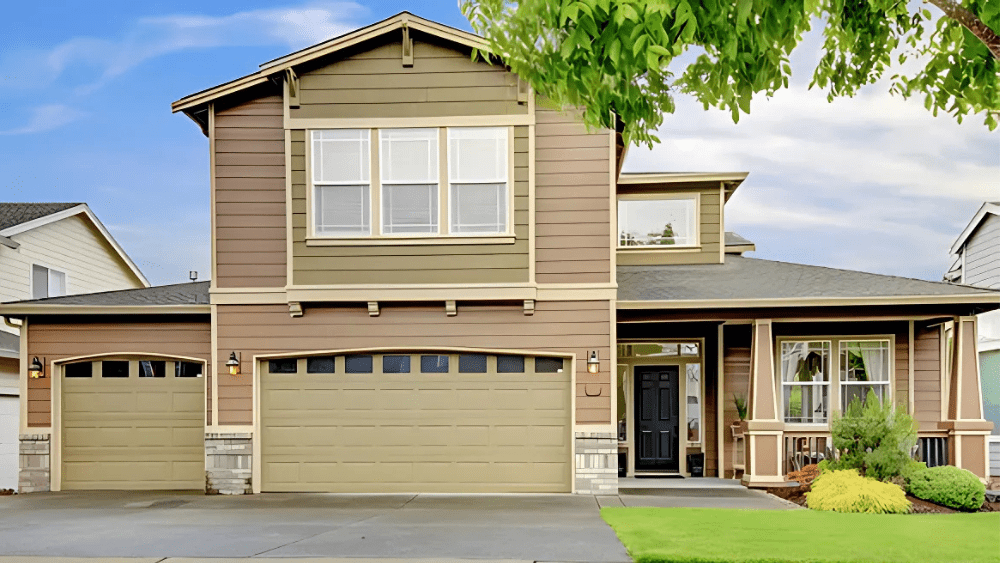If you currently owe money on your home loan and are ready to move, you may be grappling with whether you can sell the home before paying it off. What happens when you sell a home with a mortgage? Do you need to pay it off before you sell?
To cut right to the chase: You can absolutely sell a home with a mortgage. In fact, it happens all the time. Most mortgages come with 15- or 30-year terms, while the average time people lived in their homes before selling in 2023 was 10 years, according to data from the National Association of Realtors®.
“Here’s the big thing to understand: Most people have mortgages on their home,” says Kevin Bartlett, a top real estate agent in Southwest Florida who sells homes more than 50% quicker than other agents in his market. “And since the average person stays in their home for less than ten years, it’s extremely common to sell a home with a mortgage.”
So thankfully, you are not stuck in a home until you pay off every last dollar. Read on for what you need to know about what happens when you sell a mortgage, plus insights on how to gauge the right time to sell and set the perfect asking price when you still owe on the home.
What's Your Home Worth?
Request an instant home value estimate to for a ballpark estimation of how much equity you have before selling a house with a mortgage.
Can you sell a house with a mortgage?
You can absolutely sell your home if you have a mortgage. Much of the process of selling a home with a mortgage is the same as selling a home you owe free and clear. The key difference is that the money you still owe your mortgage lender will come out of your sale proceeds.
Process of selling a house with a mortgage
- You’ll use the home sale proceeds to pay off your existing mortgage balance. Your lender will receive their payout at the time of closing.
- After clearing the mortgage debt and covering the fees associated with selling a house, such as commissions and taxes, you will (hopefully!) have some profits to take home.
- If the amount received from the sale falls short of your outstanding mortgage balance and selling costs, you will have to cover the difference with funds other than those from the sale.
- Even in today’s slowing housing market, property values remain relatively high due to tight inventory. Therefore, it’s uncommon for sellers to owe more than their home is worth, a situation known as being “underwater.”
- A mortgage is more likely to become underwater if a seller falls behind on mortgage payments, sells before they’ve gained much equity, or sells during a market downturn.
Ultimately, when it’s time to sell a home with a mortgage, the path isn’t one size fits all. You’ll need to evaluate how much equity you have in your home and your reasons for selling. Follow the steps below for an in-depth explanation of the mortgaged home sale process.
Disclaimer: This post is meant to be educational and should not be considered financial or legal advice. If you need help navigating the decision to sell a house with a mortgage, HomeLight encourages you to reach out to a professional advisor.
How to sell a house with a mortgage
1. Check your home value
Before you list, start by getting an idea of how much your home is worth. For a ballpark figure, you can use a free online home value estimator.
HomeLight’s Home Value Estimator pairs housing market data from multiple trusted sources with details about your house that you personally share. Input your address, answer the short questionnaire, and we’ll provide you with a near-instant estimate.
Keep in mind that our estimate tool is not a guarantee of what your home will sell for. On the open market, a buyer may be willing to pay more or less than what your estimate shows.
2. Contact your lender
Next, you want to find out how much you still owe on your mortgage, so communicate with your lender. The mortgage company is required to provide the total amount required to satisfy the mortgage debt as of a specified date, a figure known as the payoff amount.
“It’s always going to be a good first check to call the bank and ask for a payoff statement,” shares Richie Helali, senior lender sales manager at HomeLight. “It will help you estimate how much equity you’re going to receive if you do sell it for a particular number.”
The payoff amount includes any interest you owe until the day you plan to pay your loan in full. Once you close on your house, your escrow company will coordinate with your lender to get an updated payout amount and use your home sale funds to pay off the debt in its entirety.
“Most people put their mortgage on auto-pay, so they don’t always take a look at their statement every month,” Helali adds. “One of the first questions I ask clients who want to sell and buy a new house is, ‘How much do you owe?’ and they might say $200,000. Once they get a payoff statement, it might be $210,000-$220,000, which affects things like their budget for a new home significantly.”
3. Estimate your net proceeds
Now that you’ve collected a home value estimate and your mortgage payoff amount, use this simple home sale proceeds formula to estimate how much you’ll walk away with:
| Credit/debit for the sale | Example calculation |
| Market value of your home | $400,000 |
| (-) Mortgage payoff amount | $100,000 |
| (-) agent commission (3% of the sale price) | $12,000 |
| (-) approximate closing costs (1%-3% of the sale price) | $6,000 |
| = estimated home sale proceeds | $282,000 |
HomeLight also offers a handy Net Proceeds Calculator to help you better estimate the cost of selling your home and the net proceeds you could earn from the sale. In addition, your agent may prepare what’s called a net sheet for you, which can help you account for any local fees and costs specific to your area.
You won’t know the exact breakdown of credits and fees for the sale until you receive your estimated settlement statement at closing, but a ballpark calculation upfront can help you get a clearer vision of whether now is the right time to sell from a financial perspective.
“Your preliminary settlement statement will tell you what you can expect your net proceeds to be,” Bartlett explains. You’ll use your proceeds to pay back your lender and to pay for home sale costs. Many sellers underestimate what it costs to sell a home — which amounts to around 9%-10% of the home’s sale price, not including the mortgage payoff.
On top of this, note that some loans include prepayment penalties. Revisit your loan agreement, as it may have a clause charging a fee when you pay off the mortgage early, say, through a sale. The cost may be a percentage of the remaining loan balance or a set number of months’ interest. Consult with your lender to confirm.
If the estimated margin between your home value and selling costs is slimmer than you realized, you can determine whether to move forward or wait a few years to build up more equity before selling.
4. Find a great real estate agent
If you haven’t done so already, now would be a great time to find a top-rated real estate agent who can help you through the steps of selling a house with a mortgage. Working with a knowledgeable agent who can sort through all the noise and provide sound advice will be invaluable to your home-selling experience.
“I think most consumers are just confused,” says Darren Tackett, a top agent in Scottsdale, Arizona, with 27 years of experience. “The media has been extremely negative. You constantly have articles calling for the crash, so I often get the question, ‘Should I sell immediately; do we need to get out?’ This isn’t a bad time to sell, but I personally feel rates are going to continue dropping and that we’re getting ready to have a nice little bounce back.”
In today’s digital world, one of the easiest and most effective ways to find an agent is through an online agent-matching service. A matching service goes one step beyond providing a general list of agents in your area and will suggest two or three qualified, top-performing candidates tailored to your selling needs and location.
Find Your Perfect Agent Match
Hire a top agent who can help you navigate the steps of selling a home with a mortgage. HomeLight’s Agent Match tool analyzes over 27 million transactions and thousands of reviews to determine which agent is best for you based on your needs.
This process saves you time while leading to a more effective search for the best local agents. The top 5% of real estate agents surfaced through the HomeLight platform, for example, are known to sell houses for up to 10% more than the average real estate agent.
To narrow your list of potential agents to top performers and get easy access to an agent’s ratings and reviews for free, request your agent matches through HomeLight, and we’ll be happy to make some introductions.
Bartlett recommends interviewing at least two or three agents to find someone whose communication style and experience match your needs and who can recommend a winning marketing strategy for a home in your market and price range.
5. Prep your home for a quick, profitable sale
To sell your home for more money and close faster, take the time to give your space some basic TLC before you list. At the top of your list should be a deep clean and declutter. You should also aim to depersonalize by removing family photographs and other distractions and stage your home to attract the most buyers possible.
According to HomeLight’s most recent Top Agent Insights Survey, 67% of agents stay staging helps to sell homes, while 31% consider it “essential for a sale.” Our survey also suggests that a professionally staged home may sell for up to 13% more than an unstaged one. Work with a top agent experienced in staging to highlight your home’s best features and help potential buyers envision themselves living in the space.
If you’re listing a home with a mortgage, you may be in a position where you’re selling a home while living in it. It can be a challenge to primp and perfect your house for showings while you’re still eating, sleeping, and, well, living your life there. But depersonalizing is key for a swift and profitable sale.
Check these pre-listing tasks off your list:
- Invest in deep cleaning — a simple upgrade that adds major value (up to $8,000, according to a recent HomeLight survey).
- Empty out your junk drawers and pull everything out of your closet. To ensure buyers see the space as offering ample storage rather than being stuffed to the brim, stage your closets and other storage areas to look sparse and organized.
- Sell or donate items that you don’t need or want to take with you to your next home, such as old furniture, clothing, and electronics.
- Consider renting a storage unit to house the stuff you want to keep, but that isn’t good for the aesthetic you’re creating for buyers.
“Imagine a model home,” Bartlett says. “Make your home look like that: light, bright, airy, and free of clutter.”
6. Set a price for the home
With the help of your agent, determine an appropriate asking price for your home. The price should be in line with market expectations and reflect what a real buyer is likely willing to pay. Price it too high, and the home could sit stale on the market without any offers, leading you to accept a lower price than necessary.
To set the perfect price, “you’ll look at the comparables in the marketplace,” Bartlett says. He emphasizes the importance of considering your home’s unique features, both good and bad, when setting your expectations for a strategic listing price.
“What have you done to it, and how does it look?” Tackett asks. “I still get some people who really haven’t recognized that things have slowed down quite a bit, and they still think their homes are going to sell very quickly at a crazy number.”
Agents across the country agree. In a recent survey of over 1,000 top real estate agents nationwide, HomeLight found that overpriced homes were the top deal-breaker for buyers. Properly pricing your home is now of utmost importance for ensuring a smooth home sale, according to 72% of agents.
You may already have a sense of what your home is worth, but your agent will provide a CMA that packages together key pieces of information, including the sale price of other nearby homes and local market trends, to offer a complete overview.
Look to the CMA for guidance in the pricing process. It will take into account your home’s unique features and condition, as well as factors like inventory levels and price patterns for the area.
7. Accept an offer and open escrow
Once you accept an offer from your buyer, you’ll complete any additional steps to close, such as the home inspection and home appraisal. At this point, you may wonder if you need to get in touch and update your mortgage lender about your plans to sell and pay off your remaining mortgage balance. However, you can rest assured that your third-party escrow company will facilitate those communications.
“Technically, you don’t have to say anything to the bank when you’ve accepted an offer on your home,” confirms Helali. “You just continue making your payments, and as you get closer to the closing date, the escrow or title company that’s going to be handling your transaction will reach out to your lender and get an official payoff statement based on an actual closing date. There isn’t much maintenance that you have to do.”
8. Review your settlement statement
One of the final steps in selling a home is reviewing your settlement statement, which is an itemized list of fees and credits summarizing the finances of the entire transaction.
This is where you’ll be able to see:
- The sale price of the property
- Your exact mortgage payoff amount
- Additional closing costs being subtracted from the price.
- Who’s getting paid, including agents collecting commission, local governments owed, taxes and recording fees, and final charges going to the lender
- Net proceeds (which will likely be at the bottom labeled as total credits to the seller)
You won’t personally have to worry about making sure your lender gets paid. Helali explains: “When the buyer of your home makes the purchase, the escrow company will receive all of the funds, and they’ll write a check directly to your lender.”
Top questions about selling with a mortgage
Now that we’ve reviewed the general process of selling a house with a mortgage, let’s clear up some common points of confusion while addressing unique circumstances that may cause your path to look a little different.
What if your house is underwater?
Selling a house with a mortgage is extremely common. In most cases, to satisfy the loan obligation, you simply need to put your house on the market, find a buyer, and pay off your mortgage debt when the deal closes. In the first quarter of 2024, the number of mortgage properties with negative equity was at a mere 1 million homes, or 1.7% of all mortgaged properties, according to property analytics company CoreLogic.
However, if you’re underwater on your mortgage, you’ll need to work out a different solution of some kind.
“Normally, someone that’s underwater is not going to sell. But if they’re in a spot where they don’t have a choice, if they can afford to pay the difference and sell the property, some people will do that,” Helali shares.
“For most folks, that’s not an option,” he adds. “At that point, they’ll need to contact the lender to request a short sale, which is when you sell for less than what you owe.”
The lender must agree to the short sale and approve an offer before you can move forward with the transaction. Depending on the situation, it may be possible to work out an arrangement or modified payment plan.
Who is responsible for the mortgage during the sale?
A borrower is required to make on-time mortgage payments until the outstanding balance is paid in full. So as you prepare and price the home for sale, navigate offers and negotiations, and wrap the steps to closing, you’ll continue to make mortgage payments in the same way you always have.
“Keep making your mortgage payments until the day of closing,” Bartlett says. “You don’t want to get caught up in the selling process and become late on your mortgage because that will really hurt you when it comes time to buy another house.”
How soon can you sell a house you just bought?
You can technically sell your house at any time. A homeowner’s decision to sell abruptly often stems from an unplanned life change, such as a job loss or relocation, a death in the family, a divorce, or an injury or medical condition.
That said, real estate isn’t a get-quick-rich scheme. Although some markets might see quicker appreciation, in most cases, the value rises slowly over time, making it advantageous to hold on to the home for a while before selling, if possible.
Can you sell a home before it’s paid off?
The short answer is yes. The timing of when to sell a home is a personal decision and is dependent on your circumstances and financial goals. However, keep in mind that if the value of your home won’t cover your outstanding mortgage balance and selling expenses, you’ll need to bring separate funds to the sale to cover the difference.
“It comes down to how much equity you have in your home,” Bartlett says.“It all depends on the seller’s individual situation.”
That said, Bartlett notes that in his experience, waiting at least a couple of years tends to be important for at least breaking even on your home sale.
“Because of closing costs and agent fees, it’s expensive to sell your house,” Bartlett explains. To ensure you’re coming out ahead, it can, as a general rule, be beneficial to let your home appreciate for at least a couple of years before you sell.
Another thing to keep in mind is that if you sell the home before owning it for a minimum of two years, you’ll likely have to pay capital gains tax as a result of the sale.
- If you sell less than a year after buying, you’ll have to pay a short-term capital gains tax on your gain from the sale, which is taxed as ordinary income according to your tax bracket.
- If you sell more than a year after buying, but less than two years, your gain will be taxed at the lower long-term rate, 0%, 15%, or 20%, based on your capital gains tax bracket.
If you’ve owned and lived in the home for two of the past five years — and haven’t excluded gain from the sale of a different main residence in the past two years — the IRS allows you to exclude up to $250,000 of gain if single or married and filing separately, or up to $500,000 if married and filing jointly. We always recommend reaching out to a tax advisor to go over the details of your individual transaction.
Can you have two mortgages at once?
Whether you can take on two mortgages at once will largely depend on a criteria lenders consider called your debt-to-income ratio (DTI). DTI is a measure of your gross monthly debt payment to your gross monthly income. Lenders typically like to see a DTI of 35% or lower, but some allow up to 45%.
Therefore, you would most likely need your combined mortgage payments plus all additional minimum debt payments (including student loans, car payments, and credit card debt) to equal no higher than 45% of what you’re bringing in every month to qualify for two mortgages.
“If you’re in a situation where you have to buy before selling, the bank is going to make sure that you qualify with both loans considered,” explains Helali. “But many folks spend 30% to 40% of their income per month on housing payments, so they typically won’t be able to qualify for two mortgages.”
“Most people have to sell their house before they can qualify for another mortgage,” Bartlett echoes. “In that case, if you want to put in an offer on another home while you’re selling, you’ll often have to make your offer contingent on the successful closing of your current home.”
If you do qualify for two mortgages from a financial standpoint, then it’s a matter of whether you feel comfortable juggling both payments and for how long.
John Werner, owner of Mortgage and Credit Pro in Arizona, says he has seen an uptick in the number of borrowers struggling to keep up with multiple mortgages as short-term interest rates have increased.
“With the prime lending rate jumping up so quickly, some of these people might have done a remodel and had a $1,000 payment, and now their payments are $1,500 to $1,600 a month. I have been getting calls from people wanting to combine all of that together,” Werner explains. “The problem is they don’t have enough equity to combine all together.”
How can I sell a home with a mortgage and buy a new one?
Unless you have a lot of cash on hand, it might be tough to come up with the money for a down payment while the equity is still tied up in your current home.
Get a Guaranteed Cash Offer in 24 Hours
Sell your house fast with an all-cash offer through HomeLight’s Simple Sale network and close in as little as 10 days. No showings, no repairs, no open houses.
Your options here may be to:
- Make a contingent offer, which includes a condition that your contract is dependent on your current home selling. This protects you from carrying two mortgages but weakens your offer.
- Purchase the new home before your old home sells if you can qualify for two mortgages. The difficulty of this route is noted above.
- Consider a bridge loan, which provides financing to buy a new home that you pay back when you sell your old one. But, keep in mind these loans can be hard to qualify for and come with interest and fees.
- Seek an offer from a cash buyer to ensure the speedy sale of your existing residence, and put the proceeds toward the next home.
- “You can unlock equity in your home using a Buy Before You Sell Program,” Bartlett says. Look into a home trade-in or buy before you sell program to access your home equity and use it toward your next residence.
“Some companies have come up with a neat solution to get rid of your old home while you’re in the process of buying a new one,” shares Helali. “That’s one of the things that we do at HomeLight called the Buy Before You Sell program.”
With Buy Before You Sell, HomeLight will evaluate your current home using a proprietary algorithm to determine how much of your home equity you can unlock to put toward your next down payment. This allows you to make a contingency-free offer on a home and avoid potentially having to pay two mortgages or rental fees.
Examples of other buy before you sell or trade-in services include Orchard Move First, Flyhomes, and Homeward.
The greatest challenge for many people considering selling and buying right now is the substantial interest rate increase they’d face if they switched mortgages.
“If you’re sitting on a mortgage, and you’re at a 3% rate, is it really worth it to buy into a 6% interest rate environment?” Tackett says. “I think that’s part of what’s keeping our inventory in check. What you end up with is a lot of people kind of frozen in place. Unless rates drop back below 5%, a lot of those people are just going to decide to stay put.”
For those who are biting the bullet, many are having to sacrifice their home sale’s profit to afford the transition, Werner says.
“Everyone that I’m dealing with that is selling and buying, they are rolling all of their equity into the new house,” he explains. “They’re trying to keep things as level as they had before.”
When the stars align, Bartlett advises his clients to consider the benefits of selling their current home before putting an offer on a new home.
“My advice is to know exactly what you’re walking away with before you start your next venture,” he says.
Of course, that means you’ll need to find transitional housing and deal with the hassle of moving twice. That can be a tricky dance, but there’s a lot of value in knowing exactly what you’ll net on your home sale — and, hopefully, being well-positioned to put in a winning offer on your next home.
Can you make money on a house you still owe on?
Yes, you can absolutely make a profit on a house you still owe money on. When you sell a house with a mortgage, any profits left over after you cover your outstanding mortgage balance and selling expenses are yours to keep.
Selling with a mortgage: It happens all the time
Mortgages are awesome financial tools that allow people without hundreds of thousands of dollars in cash reserves (aka, most of us!) to achieve their dream of homeownership. Some homeowners will stay in their homes long enough that the entire mortgage is paid off by the time they sell. However, it’s not required that you stay in your home until that happens.
Typically, sellers use their proceeds to pay off their remaining mortgage balance and closing costs, then pocket the remaining funds. This option is possible because real estate generally gains value over time, so a house is usually going to be worth more when you sell it than when you purchased it. That’s the beauty of owning a home.
Writer Max Efrein contributed to this story.
Header Image Source: (Ralph (Ravi) Kayden / Unsplash)
- "Top Agent Insights for End of Year 2023," HomeLight (December 2023)
- " Top Agent Insights for Summer 2023," HomeLight (July 2023)
- "Highlights From the Profile of Home Buyers and Sellers," NAR (November 2023)
- "Existing-Home Sales Housing Snapshot," NAR (October 2023)
- "Homeowner Equity Insights – Q1 2024," CoreLogic (June 2024)
- "Capital gains," Carta, Angelina Lam, EA & Shelby Skoczylas, CPA (October 2024)
- "What is a debt-to-income ratio?," Consumer Financial Protection Bureau (August 2023)



















 English (US) ·
English (US) ·